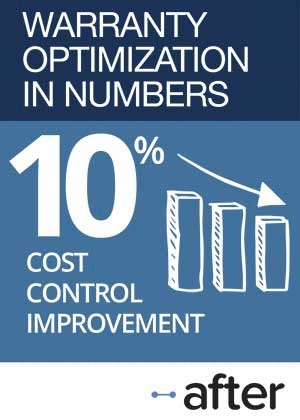Motorcycle Service Contracts:
As with passenger cars, the policies exclude consumables, accidental damage, and routine maintenance. And as is done with RVs, they are starting to cover perils such as being stranded far from home. But some say that takes them dangerously close to the line between service contracts and insurance. Others wonder if these new bells and whistles are all that necessary.
Motorcycle service contracts cost less and cover less than their larger cousins do for passenger cars, light trucks, and recreational vehicles. Yet they can sell better than vehicle service contracts in general, if they're positioned correctly by a skilled salesman.
As with family automobiles, the core of the market is comprised of service contracts sold by dealerships as an add-on to a new vehicle purchase. And as with service contracts for passenger cars, the breadth of coverage has been expanding to counter the downturn in unit sales, adding in coverages that used to be part of insurance policies, such as hotel and meal expenses while stuck in the middle of nowhere.
Then there are the clear differences. Most obviously, the motorcycles have less wheels and carry fewer passengers than cars. And although they're far from a house on wheels, they're vehicles that are used more commonly for recreation than for commuting to work. And that's reflected in how the service contracts are sold, and what perils they cover.
Different Risks
Ron Ezsak, the former vice president of sales and marketing at warranty claims processing software company ActiveWeb Services LLC (where he signed clients such as Big Dog Motorcycles LLC), has himself been a motorcycle owner since 1971. Interviewed this week by phone (coincidentally, as he was driving his family car), he reflected on some of the major differences between the vehicle service contracts aimed at passenger cars and motorcycles.
"The risk is perceived very differently," he said. "There aren't as many motorcycle riders who rely on their motorcycles as their primary means of transportation. I mean, there are some, clearly, but it's a small percentage. Whereas a person in their automobile has a different relationship: It's a dependency."
And then there's the issue of risk aversion. There's nothing inherently unsafe about a motorcycle, but the use of helmets is required in most states, and the purchase of a good health insurance policy is advised. But at the same time, let's admit that a bike rider has to be a bit of a risk taker, or else they'd be driving a Volvo. What this means in terms of service contracts is that there's a tendency to go without them, because peace of mind isn't as important to a risk taker.
Recreational Vehicles
Ezsak said all service contracts are bought as a hedge against risk -- as a way to gain a sense of peace of mind that the cost of a mechanical breakdown will be covered, should one occur. "But bikes are different," he said. "Since, for the most part they're not a primary form of transportation, what it basically says is that 'You're going to get a lot more enjoyment out of it.'"
And the value of that, he suggests, is a lot lower than the value of believing your car will get you to work every day. People who would pay several dollars per day for that peace of mind when it comes to their primary vehicle might not be so eager to do so for a leisure vehicle used most heavily on warm and dry weekends. A rainy day (or a snow storm) impacts the ability of a bike rider to enjoy their investment as decisively as a typical mechanical breakdown. Either way, you're off the road.
Accordingly, because the value is perceived to be less, the average price of motorcycle service contracts is a lot lower than is typical for passenger cars. But the average cost of repairs for major components such as engines and gearboxes isn't all that different, especially when looking at high-end touring bikes.
So Ezsak said it's better for a salesman to position a motorcycle service contract as a hedge against value -- a guarantee of sorts that the unit will still be in a saleable condition in five or seven years, because the repair bills are essentially pre-paid when the service contract is purchased. "It usually has to do with 'Protect the asset while you're still paying for it,'" he said.
Forget Self-Repairs
Even among longtime riders, he suggested, it's becoming less and less common for customers to try to self-repair their motorcycles. Fuel injectors, anti-lock brakes, computers, and other advanced technologies weren't used on bikes a few decades ago. It's a bit like the appeal of a service contract for a plasma television: you don't understand it, so you'd better protect it.
Then again, Ezsak points out that in recent years the high-end touring bikes have become quite popular with high-end customers such as dentists and commodity traders. The point is, if they can afford to spend $20,000 or $30,000 on what's essentially a leisure purchase, they can probably afford to pay for repairs out of pocket. In other words, they can afford to leave themselves unprotected by a service contract.
These are the kind of people, he said, who ride out in formations to the Sturgis Motorcycle Rally every summer in South Dakota, followed by a chase vehicle that's ready to scoop up any breakdowns. They're seriously into the lifestyle, but they also can afford some of the luxuries.
However, they can't afford to be stuck in the middle of nowhere for long, because they really do have to be back at work in three days. Peace of mind for them comes in the form of roadside assistance services or travel interruption coverage that will help them avoid having to abandon their bikes on the side of the road in the middle of nowhere.
"Those are the hooks," Ezsak said. "That's when people say, 'Wow, that's something I want!' For the more mature touring bike rider, the inconvenience of being stuck on some road -- the reassurance that you're not going to be stuck out there -- that's valuable. They want to call a number. They may be inconvenienced for three or four hours. But eventually someone will show up, their bike will be taken to a safe place where maybe it can be repaired."
Typical Contract Prices
The Fulcrum Warranty Solutions division of Fulcrum Analytics Inc., a longtime sponsor of this newsletter, conducted a survey in February that probed the likely motivations of power sports and luxury vehicle buyers in 2010. We covered the results in depth in the March 1 edition of the newsletter, but we wanted to revisit some of the findings specific to motorcycles.
In its survey, Fulcrum found that the mean price that respondents deemed to be "reasonable" for a motorcycle service contract was $450, an amount that was well below half of what they thought was a reasonable price for a passenger car service contract. However, that amount wasn't all that far below the actual price, which is currently in the $600 to $650 range.

Paul Swenson, president of Fulcrum's Warranty Solutions division, said this week that he's seen confidential loss cost data that suggests the contracts are profitable, even at that price.
Fulcrum, which is known for its loss cost analytical skills across several industries, including power sports and motorcycles, is able to look deep inside the claims data, separating labor costs from parts costs, for instance.
"When you take a look at labor rates, they're pretty similar across automotive and power sports," Swenson said. "The difference really comes into the parts side of the equation." Cars have more parts, and they have more expensive parts. So the typical severity of a motorcycle claim is lower, not only per unit or per claim, but also as a percentage of vehicle cost. But that gap is closing, thanks to new technologies, he added.
Emotional Relationship
In part, he agrees with Ezsak that the appeal of service contracts for motorcycles goes above and beyond the need to pre-pay for major repairs. "A motorcycle has much more of an emotional relationship between the owner and that vehicle than your typical transportation-mode automobile," Swenson said. So they want to protect their investment.
And therefore, while around one-in-three new car buyers will also purchase a service contract, with motorcycles it can be a bit higher. Several of the franchise dealers and plan administrators contacted by Warranty Week reported attachment rates of 25% to 30%, and one even reported a 40% attachment rate for motorcycles.
Trip interruption coverage is a very recent arrival in most cases. Those who have it, added it within the past year or so. Those who saw their competitors add it recently are now wondering what all the fuss is about. And, in fact, one major administrator that added it has yet to see any meaningful increase in claims, suggesting it has more to do with fashions, fads, and salesmanship than with any real, actual, and necessary risk transfers.
The Motorcycle Division of American Honda Motor Company Inc., for instance, does not yet offer any kind of trip interruption coverage. Instead, the company's vehicle service contracts, which are offered by many Honda motorcycle dealers, are more or less restricted to mechanical breakdown coverage.
Here's a quick look at the items covered by a Honda Protection Plan:
- Fuel System
- Fuel Pressure Regulator
- Fuel Injectors
- Carburetors
- Fuel Pump
- Electrical
- Fuel Pressure Regulator
- Alternator
- Regulator/Rectifier
- Engine Control Module
- Ignition Coils
- Cooling System
- Radiator
- Water Pump
- Thermostat
- Cooling Fans
- Engine
- Transmission
- Crankshaft
- Cylinder Heads, Pistons, Camshafts, Cylinders
- Brakes
- Calipers
- Reservoirs
- Anti-lock Control Module
- Exhaust
- Muffler
- Exhaust Pipe
- Variable Exhaust Control
- Chassis
- Forks
- Shocks
- Swingarm
- Frame
Roadside assistance is available as an additional option, for an additional fee. It includes:
- Coverage up to 60 months,
- Towing to nearest Honda dealer regardless of mileage,
- Towing to any Honda dealer or your home within 30 miles of breakdown,
- Coverage in United States, Canada & Mexico,
- Locksmith & Extrication assistance,
- Fluid delivery (up to two gallons), and
- Up to four service incidents per year.
The service contracts can add up to four years of coverage to follow the standard one- or three-year factory warranty on the motorcycle. There is no restriction or expiration based on vehicle mileage. No matter which dealership sells the contract, repairs may be performed at any authorized Honda Motorcycle/ATV Dealership within any of the 50 United States. And coverage is transferable to the next owner at no additional cost.
Honda's service contracts exclude tires, batteries, audio equipment, accessories and expendable maintenance items, such as spark plugs, belts, filters and lubricants. Trip interruption expenses, and all other kinds of consequential damages, are also specifically excluded.
Trip Interruption Coverage
The National Auto Care Corp., which has now shortened its name to just NAC, sells its service contracts through more than 2,500 dealers and financial institutions across the U.S. It has sold over one million service contracts since opening for business in 1984.
NAC's CycleMax Pinnacle Protection Plan is available for motorcycles up to three years old. "Basically, if it�s not listed in the exclusion section on the contract -� it�s covered," the company states in its marketing brochures. And those exclusions are:
"Battery, hoses, belts, tires, wheels, wheel covers, light bulbs, sealed beams, lenses, shock absorbers, exhaust systems, brake rotors, brake drums, brake shoes, brake pads, anti-theft systems, speakers, upholstery, paint, glass, trim, moldings, weather strip, body panels, sheet metal, rust, corrosion, water leaks, physical damage. Any equipment not installed by the manufacturer."
NAC's CycleMax Pinnacle Protection Plan includes a trip interruption reimbursement of up to $50 a day for meals and lodging, not to exceed $150. To collect, the claimant must be 200 miles or more away from home, and the expenses must be incurred because of a covered breakdown. Also, the flat-rate labor time required for the repair must exceed eight hours for each day's expense.
Western Skepticism
The Western Service Contract Corp., meanwhile, is not now offering trip interruption coverage for its motorcycle service contracts. But because of competitive pressures, it may end up doing so. However, there are some very clear doubts within the company as to whether there's any value to it.
As it stands now, here is a list of the coverages built into the Western Service Contract protection plans. There are three tiers of coverage: Basic, Advantage, and Concept:
Coverages Included in All Plans:
- ENGINE - All internally lubricated parts, coolant pump and turbo charger. Cylinder and cylinder head only if damaged by a mechanical breakdown of an internally lubricated part.
- TRANSMISSION - All internally lubricated parts contained within the transmission case and case only if damaged by mechanical breakdown of an integral part.
- PRIMARY DRIVE UNIT - All internally lubricated parts contained within the primary case, except clutch assemblies. (Clutches are not covered). Primary case only if damaged by a mechanical breakdown of an internally lubricated part.
- FINAL DRIVE UNIT - (Shaft Drive Only) All internally lubricated parts contained within drive shaft and final drive housings. Drive shaft housing and final drive housing only if damaged by a mechanical breakdown of an internally lubricated part.
Coverages in "Advantage" & "Concept" Plans Only:
- SEALS AND GASKETS - (New Vehicles Only) All seals and gaskets contained within the engine, primary, transmission, driveshaft and rear drive, due to leakage. (Front fork seals and exhaust gaskets are not covered.)
- BRAKES - Brake hubs, disc rotors, disc calipers, master cylinder, assembly, hydraulic lines and fittings, and drum brake actuating mechanisms, including the brake backing plate. (Disc brake pads and brake shoes are not covered.)
- ELECTRICAL - Starter motor, wiring harness, switches, solenoids, coils, electronic ignition control modules, alternator, stator and rotors, AC/C rectifiers, electronic fuel induction/injection control module and its sensors, fuel pumps and cooling fans. (Radio receivers and transmitters, and sound systems are not covered.)
- STEERING - Upper and lower steering stem bearings and their races.
- FRONT SUSPENSION - All internally lubricated parts contained in the front fork tubes, anti-drive mechanism and front wheel bearings. Front fork tubes and hub only if damaged by a mechanical breakdown of an internally lubricated part.
- REAR SUSPENSION - Rear wheel bearings and swing arm bearing/bushings. Hub, if damaged by a mechanical breakdown of an internally lubricated part. (Shock absorbers are not covered.)
- INSTRUMENTATION - All factory instrumentation (mechanical and electronic) and electronic instrument sensors. (Light bulbs are not covered.)
Coverages in "Concept" Plans Only:
- CARBURETORS - Carburetor, intake manifold, fuel tank and linkage.
- FRAME - Frame, subframe, frame attachment, brackets and radiator.
- RENTAL REIMBURSEMENT & TOWING -(Limitations on contract.)
Sweetening the Appeal of the Deal
Fulcrum's Swenson said these coverages and exclusions are pretty standard when it comes to motorcycle service contracts. Nobody is going to cover consumables such as brake pads or filters. But everyone is taking a look at the seductive new additions that might be the trigger that convinces more buyers to include a service contract in their purchase.
"One of the things you're seeing from a lot of the manufacturers now is that they're looking to add those types of coverages -- tire and wheel, trip interruption, roadside service -- that actually mirrors some of the successful automotive service contract offerings that have proven themselves to be valued by various segments of the customer base," Swenson said. It increases the appeal of service contracts to buyers, and that helps dealers sell more contracts.
"Let's face it, the last two years have been devastating to this industry," Swenson noted. "Many dealers have had to close their doors. The dealers that have been able to remain open are suffering. The OEMs are suffering." So anything that helps raise the revenue per unit sold is good for both dealers and manufacturers.
"They're looking for additional ways to stay connected to their customers, and to make additional revenue, and some profit," Swenson said. "And one of the ways to do that is by enhancing their service contract offerings with additional features and benefits. It's not just about revenue and profits, though. It's also about staying connected to the customers, and keeping them brand-loyal."
Few Trip Interruption Claims?
Christina Schrank, NAC's vice president of marketing, said the motorcycle service contracts her company sells now include trip interruption coverage. However, the amount of claims that this new coverage actually triggers has been minimal, and has had little impact on the continuing profitability of motorcycle service contracts.
National Auto Care sells both vehicle service contracts for both passenger cars and motorcycles. And Shrank said that both the frequency of claims and the loss costs of those claims are lower on the motorcycle side of the business. But rather than differences in the price of labor or the price of parts, she sees a more basic reason for the difference: owners typically put less miles on their motorcycles, because of the seasonal and leisure-oriented nature of the usage.
However, that doesn't automatically mean that service contracts are less necessary for motorcycle riders, or that they attach less value to the coverage. In fact, Schrank said she thinks the most important factor of all is the selling skills of the dealer. Those with the strongest selling skills will sell the most contracts, no matter what the price or coverage.
Lifetime Drivetrain Warranty
But just in case, NAC also now has a way to help dealers who may not be selling too many service contracts to sell more bikes. In certain cases, NAC will help a dealer provide a limited lifetime warranty on the motorcycle's drivetrain, above and beyond what the manufacturer provides, and it will administer the claims cost for the dealer in return for a small administrative fee.
In its marketing brochures, the company states that it believes this option can increase service department retention and profits, and provide a marketing strategy that will differentiate a motorcycle dealership from its competition. But it's a dealer warranty, not a service contract, so the customer receives this additional guarantee at no charge. It is not priced separately.
Schrank said the lifetime powertrain warranties will definitely help a dealership stay more connected to its customers, because the only place they can bring the bike in for warranty work on the drivetrain (after the manufacturer's warranty has expired) is back to the selling dealer. However, these lifetime warranties also reduces the appeal of service contracts, because the expensive drivetrain components are already covered for the life of the vehicle. So the dealer has to carefully weigh its options: additional unit sales or additional service contract sales?
Recent Addition
NAC added the trip interruption coverage to its CycleMax policies within the past year, Schrank said. But she added that she's not convinced that it's all that important. "Everybody does it, so yes we do it," she said. "I would say we get a handful of claims a year. It is minimal." In other words, it may help a dealer sell the policies, but it doesn't result in many claims, and it doesn't drive up claims costs all that much, at least for NAC.

That skepticism is shared by Jeffrey Kenny, the regulatory affairs director at Western Service Contract Corp. The company is evaluating whether to add trip interruption coverage to its motorcycle policies, but hasn't yet decided whether it delivers any real value to customers.
"We've seen other companies offering such coverage," Kenny said. "I'd say the trend I'm seeing now is having service contracts that offer a full range of services -- those that combine everything from roadside assistance to dent repair and trip interruption. These are options to make a service contract more desirable, both for the consumer and for the dealer selling it."
But will it result in many claims? What he's researching now are questions such as how many riders would actually be far enough away to trigger coverage, and how many repairs would take long enough to trigger payments for meals and lodging. He said he sees some value in roadside assistance services, but in terms of trip interruptions, it might make more sense to have a service that helps a stranded traveler merely find a room, as opposed to paying for it after the fact.
Service Contract Or Insurance?
Kenny said he's also wondering whether this kind of coverage comes uncomfortably close to the line between service contracts and insurance. A lot of people took what were very standard contracts covering mechanical breakdowns, he said, and started adding all sorts of coverages, believing that they make the contracts more appealing.
"Before we put that out there, I want to make sure," he said. "I am skeptical about why are they offering it. I was skeptical for years about things like pre-paid maintenance, and other items. So I am constantly wondering, if we offer this, and it's used, I want to make sure the consumer gets the value that they bargained for."
We should note that Western Service Contract Corp. is part of a company called the McGraw Group. Also part of the group is the Pacific Specialty Insurance Company, which underwrites both service contracts and insurance policies on recreational vehicles such as motorcycles, snowmobiles, and water craft. The insurance agency came first, in 1976, followed by the service contract administration in 1985, and then the underwriting in the early 1990s.
Also, Kenny said that he has a background as an insurance regulator. And because of that, he wonders if all state regulators are going to agree that trip interruption coverage is not insurance, and should be part of a service contract. At the very least, it may require modification of the state service contract laws to overtly allow such coverages to be added, as was done in some states when dent repairs were included.
Dancing on the Line?
"I think it's dancing on the line, and I think it's a line you never want to cross," Kenny said. "You can only do as much as what the statute allows you to do," he said, because it typically lists the circumstances that are exempt from the insurance code. So if it's not on the list, it's not exempt.
"Everything else besides that which offers some sort of guarantee or coverage would fall into that insurance category," Kenny said. "And I don't think the consumers are necessarily protected by that if they're sold something that has absolutely no use. They have to get the value they bargained for. And they have to understand it. You can't just load these [contracts] with options that are not valuable."









